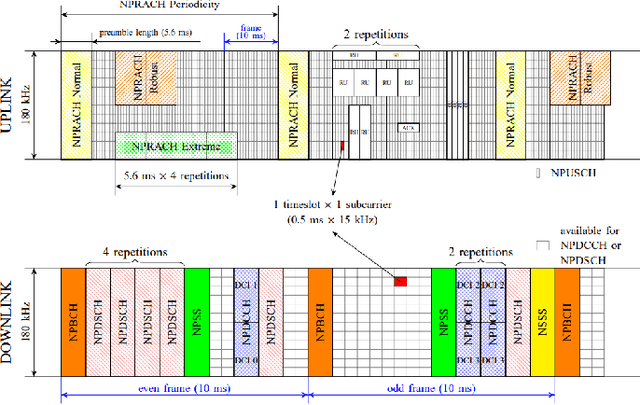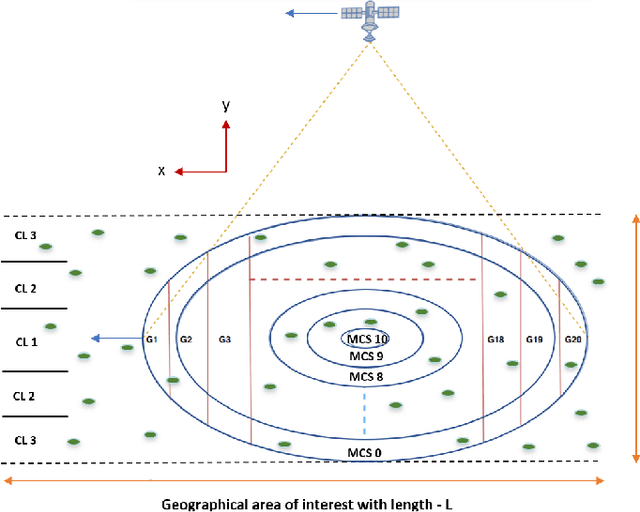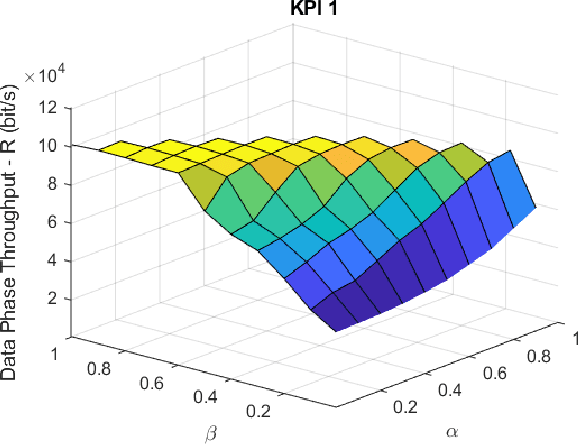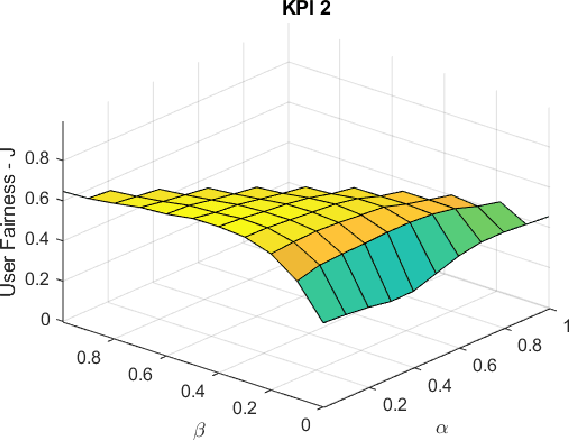F. Zimmer
NB-IoT via LEO satellites: An efficient resource allocation strategy for uplink data transmission
Jul 02, 2021



Abstract:In this paper, we focus on the use of Low-Eart Orbit (LEO) satellites providing the Narrowband Internet of Things (NB-IoT) connectivity to the on-ground user equipment (UEs). Conventional resource allocation algorithms for the NBIoT systems are particularly designed for terrestrial infrastructures, where devices are under the coverage of a specific base station and the whole system varies very slowly in time. The existing methods in the literature cannot be applied over LEO satellite-based NB-IoT systems for several reasons. First, with the movement of the LEO satellite, the corresponding channel parameters for each user will quickly change over time. Delaying the scheduling of a certain user would result in a resource allocation based on outdated parameters. Second, the differential Doppler shift, which is a typical impairment in communications over LEO, directly depends on the relative distance among users. Scheduling at the same radio frame users that overcome a certain distance would violate the differential Doppler limit supported by the NB-IoT standard. Third, the propagation delay over a LEO satellite channel is around 4-16 times higher compared to a terrestrial system, imposing the need for message exchange minimization between the users and the base station. In this work, we propose a novel uplink resource allocation strategy that jointly incorporates the new design considerations previously mentioned together with the distinct channel conditions, satellite coverage times and data demands of various users on Earth. The novel methodology proposed in this paper can act as a framework for future works in the field.
 Add to Chrome
Add to Chrome Add to Firefox
Add to Firefox Add to Edge
Add to Edge